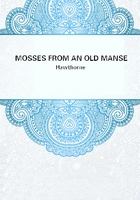Thanks to these tactics, based on the vanity of the man in the lover stage of his existence, Valerie sat down to table with four men, all pleased and eager to please, all charmed, and each believing himself adored; called by Marneffe, who included himself, in speaking to Lisbeth, the five Fathers of the Church.
Baron Hulot alone at first showed an anxious countenance, and this was why. Just as he was leaving the office, the head of the staff of clerks had come to his private room--a General with whom he had served for thirty years--and Hulot had spoken to him as to appointing Marneffe to Coquet's place, Coquet having consented to retire.
"My dear fellow," said he, "I would not ask this favor of the Prince without our having agreed on the matter, and knowing that you approved."
"My good friend," replied the other, "you must allow me to observe that, for your own sake, you should not insist on this nomination. I have already told you my opinion. There would be a scandal in the office, where there is a great deal too much talk already about you and Madame Marneffe. This, of course, is between ourselves. I have no wish to touch you on a sensitive spot, or disoblige you in any way, and I will prove it. If you are determined to get Monsieur Coquet's place, and he will really be a loss in the War Office, for he has been here since 1809, I will go into the country for a fortnight, so as to leave the field open between you and the Marshal, who loves you as a son. Then I shall take neither part, and shall have nothing on my conscience as an administrator."
"Thank you very much," said Hulot. "I will reflect on what you have said."
"In allowing myself to say so much, my dear friend, it is because your personal interest is far more deeply implicated than any concern or vanity of mine. In the first place, the matter lies entirely with the Marshal. And then, my good fellow, we are blamed for so many things, that one more or less! We are not at the maiden stage in our experience of fault-finding. Under the Restoration, men were put in simply to give them places, without any regard for the office.--We are old friends----"
"Yes," the Baron put in; "and it is in order not to impair our old and valued friendship that I--"
"Well, well," said the departmental manager, seeing Hulot's face clouded with embarrassment, "I will take myself off, old fellow.--But I warn you! you have enemies--that is to say, men who covet your splendid appointment, and you have but one anchor out. Now if, like me, you were a Deputy, you would have nothing to fear; so mind what you are about."
This speech, in the most friendly spirit, made a deep impression on the Councillor of State.
"But, after all, Roger, what is it that is wrong? Do not make any mysteries with me."
The individual addressed as Roger looked at Hulot, took his hand, and pressed it.
"We are such old friends, that I am bound to give you warning. If you want to keep your place, you must make a bed for yourself, and instead of asking the Marshal to give Coquet's place to Marneffe, in your place I would beg him to use his influence to reserve a seat for me on the General Council of State; there you may die in peace, and, like the beaver, abandon all else to the pursuers."
"What, do you think the Marshal would forget--"
"The Marshal has already taken your part so warmly at a General Meeting of the Ministers, that you will not now be turned out; but it was seriously discussed! So give them no excuse. I can say no more. At this moment you may make your own terms; you may sit on the Council of State and be made a Peer of the Chamber. If you delay too long, if you give any one a hold against you, I can answer for nothing.--Now, am I to go?"
"Wait a little. I will see the Marshal," replied Hulot, "and I will send my brother to see which way the wind blows at headquarters."
The humor in which the Baron came back to Madame Marneffe's may be imagined; he had almost forgotten his fatherhood, for Roger had taken the part of a true and kind friend in explaining the position. At the same time Valerie's influence was so great that, by the middle of dinner, the Baron was tuned up to the pitch, and was all the more cheerful for having unwonted anxieties to conceal; but the hapless man was not yet aware that in the course of that evening he would find himself in a cleft stick, between his happiness and the danger pointed out by his friend--compelled, in short, to choose between Madame Marneffe and his official position.
At eleven o'clock, when the evening was at its gayest, for the room was full of company, Valerie drew Hector into a corner of her sofa.
"My dear old boy," said she, "your daughter is so annoyed at knowing that Wenceslas comes here, that she has left him 'planted.' Hortense is wrong-headed. Ask Wenceslas to show you the letter the little fool has written to him.
"This division of two lovers, of which I am reputed to be the cause, may do me the greatest harm, for this is how virtuous women undermine each other. It is disgraceful to pose as a victim in order to cast the blame on a woman whose only crime is that she keeps a pleasant house.
If you love me, you will clear my character by reconciling the sweet turtle-doves.
"I do not in the least care about your son-in-law's visits; you brought him here--take him away again! If you have any authority in your family, it seems to me that you may very well insist on your wife's patching up this squabble. Tell the worthy old lady from me, that if I am unjustly charged with having caused a young couple to quarrel, with upsetting the unity of a family, and annexing both the father and the son-in-law, I will deserve my reputation by annoying them in my own way! Why, here is Lisbeth talking of throwing me over!
She prefers to stick to her family, and I cannot blame her for it. She will throw me over, says she, unless the young people make friends again. A pretty state of things! Our expenses here will be trebled!"
"Oh, as for that!" said the Baron, on hearing of his daughter's strong measures, "I will have no nonsense of that kind."















